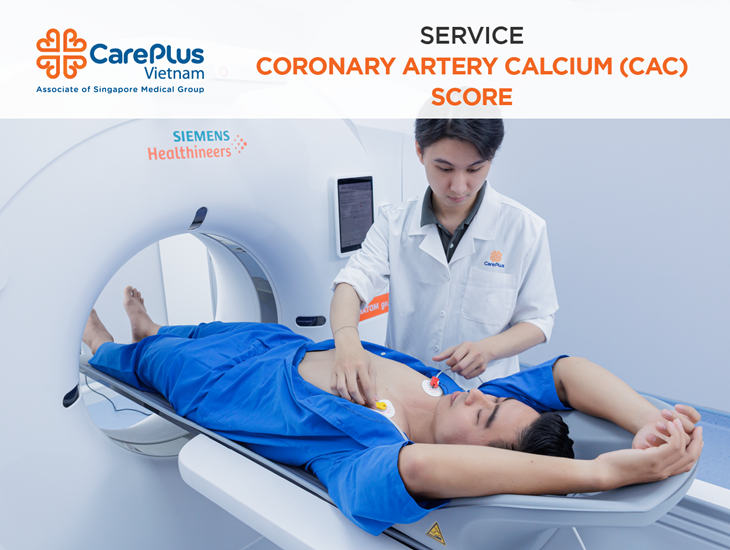Coronary Artery Calcium (CAC) Score

What is a CAC Score?
CAC Score (Coronary Artery Calcium Score) is a cutting-edge imaging test that uses CT scans to detect calcium buildup in your coronary arteries—the blood vessels that supply your heart with oxygen and nutrients.
By measuring the amount of calcium in the plaques of these arteries, the CAC Score helps estimate your risk of developing coronary artery disease or experiencing a heart attack in the future. The score is automatically calculated and categorized into different levels, making it easier for doctors to plan your care and keep an eye on your heart health.
When Should You Consider a CAC Score Test?
This test can be especially helpful in the following situations:
- Understanding Your Heart Health Risks: If you don’t have symptoms but are in a low or moderate risk group for heart disease, the CAC Score provides a clearer picture of your likelihood of developing heart problems in the next 5–10 years.
- Making Decisions About Preventive Treatments: For example, if you have high cholesterol and are unsure whether to start medication, the CAC Score can guide your decision.
- Monitoring If You’re at High Risk: People with a family history of heart disease or other major risk factors like high blood pressure, diabetes, or smoking can benefit from the CAC Score to better understand the level of danger and plan for proactive care.
Who Is the CAC Score For?
The CAC Score is suitable for:
- Individuals Aged ≥ 40
- Individuals With Risk Factors:
1. High cholesterol, hypertension, or diabetes.
2. Family history of early-onset cardiovascular disease (before age 55 in men or before age 65 in women). - Those Debating Medication Use: For example, when deciding whether to start or delay cholesterol-lowering or antihypertensive drugs.
- Not Recommended For:
1. Young, healthy individuals with no risk factors.
2. Patients already diagnosed and treated for coronary artery disease.
Who Should Skip It?
- Healthy young individuals with no risk factors.
- Those already diagnosed and receiving treatment for coronary artery disease.
The Value of CAC Score in Cardiology Applications
- More Accurate Risk Assessment:
1. The CAC Score provides quantitative insights that surpass traditional risk estimation tools like the Framingham Risk Score.
2. A score of 0 (no calcification) indicates an extremely low risk of coronary events (<1%) over the next 5–10 years. - Personalized Treatment Guidance: For patients with high scores (>100), physicians typically recommend aggressive interventions such as cholesterol-lowering medications, regular blood pressure monitoring, and heart-healthy lifestyle changes.
The CAC Score is a highly valuable diagnostic tool for assessing the risk of coronary artery disease and cardiovascular events. With its non-invasive, quick, and precise methodology, it supports effective treatment planning and cardiovascular disease management. For individuals in intermediate or unclear risk categories, the CAC Score is particularly useful for guiding preventive treatment decisions, contributing to comprehensive cardiovascular health improvement.